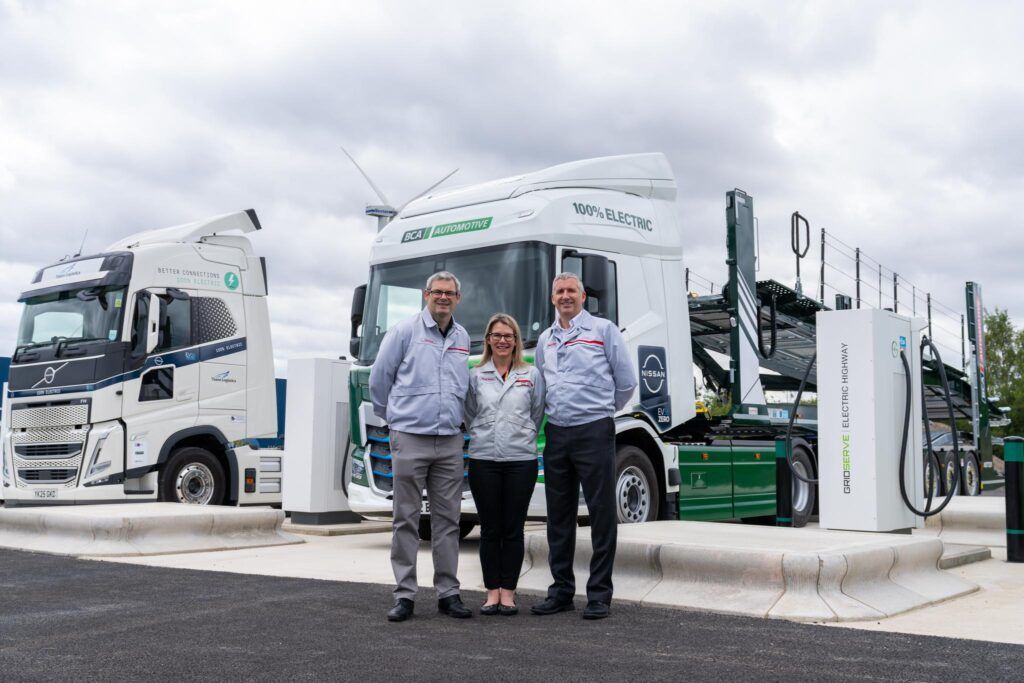Stuart Cottrell, Head of Energy Services and Government Partnerships at Tevva, highlights five actions the government should take on electric trucks.
The lack of any electric vehicle (EV) incentives in the spring budget was largely seen as a missed opportunity. In fact, several carmakers reacted furiously, with one UK boss claiming the government was ‘sleepwalking into an electric vehicle crisis’.
While the calls for incentives and other stimulation measures for the EV passenger car market become louder, the <26 tonne elephant in the room continues to go largely ignored. The government has laid out ambitious targets of no new ICE HGV under 26t from 2035, yet tangible actions to facilitate progression towards this goal simply do not exist.
At Tevva, we’ve been discussing five areas where the next government can make a difference, and provide some much needed support to the electric truck market in the UK:
Plug-In Truck Grant
This needs to be more generous to have an impact on operators’ decision-making. The current fixed grant (£16k for our 7.5t vehicle size) still leaves the operator with a large price increase over ICE. There are also too few grants available, with large trucks likely to spill over into the small truck grants this year, increasing the likelihood that they will run out. Countries on the continent have more generous schemes where the grant is calculated based on a percentage of the price difference between the zero emission vehicle and ICE.
ZERFT extension
The Zero Emission Road Freight project was exclusively for vehicles at the larger end of the market (artics). While this is a good initiative to support a sector which is challenging to decarbonise, it does risk pushing this sector before it is ready, at the expense of a potential easier win with a bigger bang for the taxpayer buck by including smaller HGVs. The vehicle parc is split approximately 70/30 between rigids and ZERFT-qualifying artics (but we do acknowledge that artics generally carry out longer journeys).
Working capital loans
It’s been a challenging time for all EV startups. Scaling businesses like ours struggle to manage the financial flows required to procure parts and services to build products, with the delayed revenue stream it incurs. Government could bridge that gap by providing working capital loans, allowing businesses to kick start this cycle rather than be stuck in the chicken-and-egg impasse.
Grandfathering extension
The existing 7.5t GVW sector is being extended to accommodate the increased weight of alternatively-fuelled trucks. At Tevva we wholeheartedly support this to protect the payload and thus the useability of this vehicle type. A driver who passed their car test prior to 1997 is allowed to drive vehicles up to 7.5t (known as grandfather rights). Many businesses use this allowance to employ drivers of 7.5t vehicles. We believe the grandfather rights should be extended in-line with the GVW extension, allowing these drivers to continue to drive heavier vehicles on their existing car licences. To not do this would risk slowing the uptake of zero emission HGVs as companies would have to recruit new drivers who hold the required licence.
Fit-for-purpose infrastructure
Fast, reliable, and strategically positioned charging infrastructure, at both a depot and national level, will be a key enabler to the roll-out of zero emission HGVs. This will allow a wider range of use cases to be tackled beyond the middle-mile back-to-base operations that are the focus today. It will give operators the confidence that they can get the job done. The government action in this area is too slow, with the consultation only happening late last year (2023). It will be many years before there is a coherent network of chargers for HGV operators to be able to rely on. The government needs to go further, faster on this.
The government’s hesitation to support and stimulate the transition to zero-emission HGVs is not just a missed opportunity, it’s bordering on a dereliction of duty. The impact of climate change, coupled with the UK’s potential to lead in the electric truck market, calls for bold and immediate action. The path forward is not through half-measures or delayed consultations but through a decisive, comprehensive strategy that addresses the urgent needs of the electric truck industry.

Images courtesy of Tevva.















